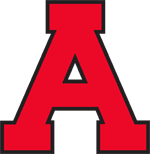Rules for Public Participation
The Board of Education of the Allendale Public School District has adopted the following rules for public participation at school board meetings. The agenda for both regular and special meetings includes a designated time for public comment.
1. The public participation portion of the meeting shall be limited to one-half hour normally. An exception will be made so that no one’s right to address the Board will be denied.
2. Each person shall be allowed to speak for up to three minutes, except where the number of speakers exceeds the time limit. In those instances, either the Board President may reduce the three-minute limit for each speaker or the President will waive the one-half hour time limit and establish a longer period.
3. Each person wishing to address the Board may be asked to identify himself/herself by name and address. If the person is representing an organization or group, the person should indicate whether the comments or presentation represents the official view of the organization or group or are his/her own comments.
4. If a delegation is present to address the Board, the delegation may be asked to select up to five representatives to speak on its behalf, for a total of not more than 15 minutes. This request, however, does not mean that any person wishing to address the Board will be denied that opportunity.
5. Any written statements should be given to the Board Secretary so that copies may be made available to all Board members. All written statements and documents presented to the Board by an individual or group during the meeting are considered public documents.
6. Individuals addressing the Board should take into consideration the rules of common courtesy. The public participation portion of the meeting cannot be used to make personal attacks against a Board member, District employee, or student that are totally unrelated to the administration of the District.
If the comments constitute a complaint against a Board member or employee, the Board member or employee has a right to request a closed session of the Board.
7. Board members may not question speakers, answer questions, or make statements or commitments in response to issues raised by the public except for clarification purposes only. In general, such issues will be referred to the Superintendent for investigation, study, and recommendation or designated as future agenda items for Board consideration.
Disorderly Conduct at an Open Meeting
If, during public comment, a citizen engages in “disorderly conduct” or acts in a manner resulting in a “breach of the peace,” a school board may take steps to control the behavior or even remove the individual from the meeting. The Open Meetings Act qualifies a citizen’s right to attend a public meeting by allowing exclusion for a “breach of the peace actually committed at the meeting.” See, 1977 OAG 5183.
The Revised School Code also permits the board president to order the removal of a citizen who, after notice from the president, persists to behave in a “disorderly manner”. MCL 380.1808. This provision also empowers the president to “order a law enforcement officer or other person to take the disorderly person into custody until the meeting is adjourned” if the person refuses to withdraw from the meeting. Further, the Michigan Penal Code states that a person is guilty of a misdemeanor if he or she “makes or excites any disturbance or contention in any….public meeting where citizens are peaceably and lawfully assembled.” MCL 750.170.

